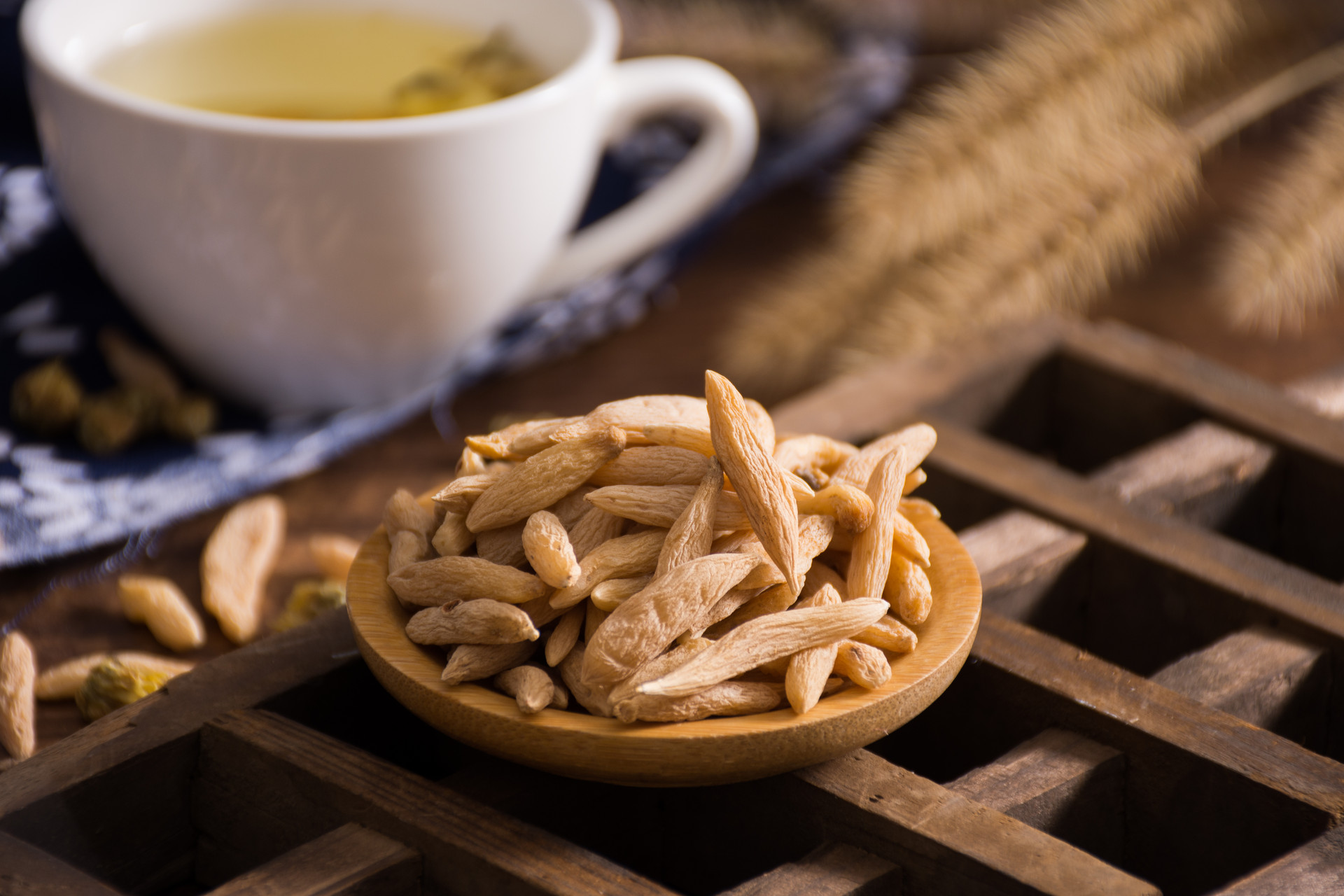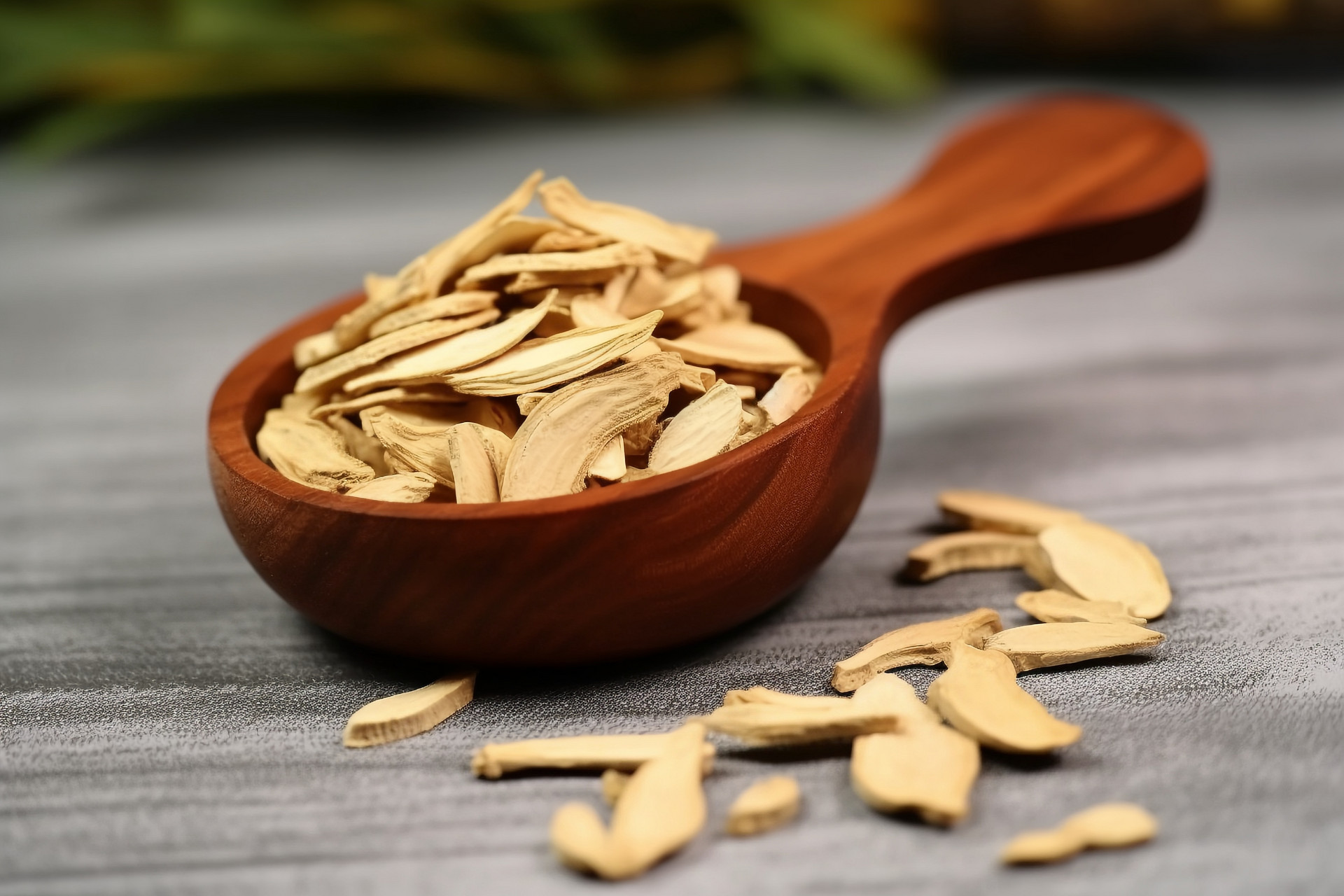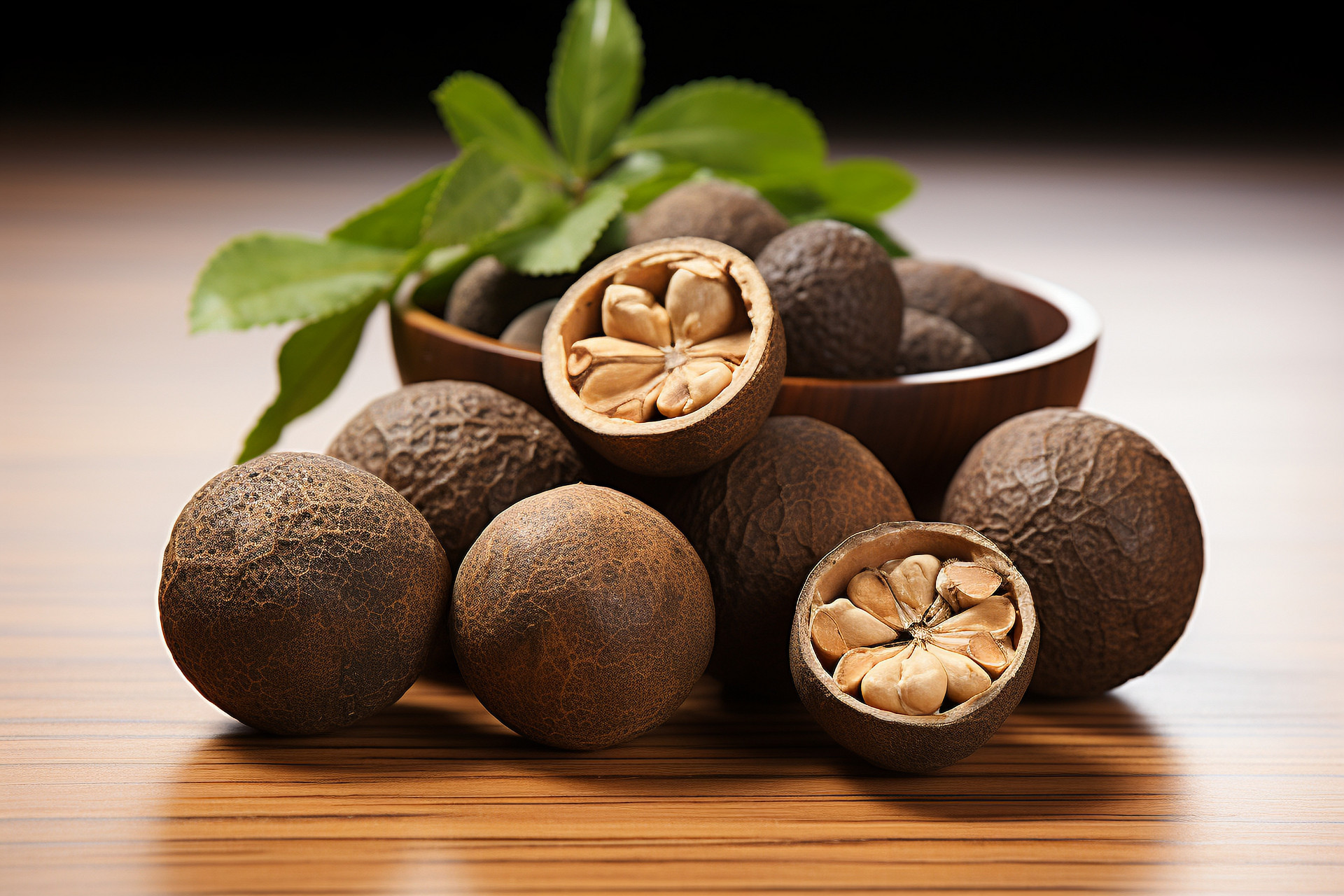Lianzi and Lianzi Xin, both have the functions of calming the mind and securing the intestines. They are often used together in clinical practice, so they are called "Er Lian" (meaning two lotus). Although they have the same origin, their medicinal parts are different, so there are slight differences in their clinical applications.

Lianzi, also known as lotus rice, lotus seed, or lotus meat, refers to the mature kernel of the perennial aquatic herb lotus in the family Nymphaeaceae. According to traditional Chinese medicine, lianzi has a sweet, astringent, and neutral nature. It belongs to the spleen, kidney, and heart meridians. It has the functions of tonifying the spleen and stopping diarrhea, nourishing the kidney and astringing essence, and nourishing the heart and calming the mind. It can tonify the spleen and astringe the intestines, and solidify the kidney and astringe the essence. It also enters the heart and kidney, nourishes the heart and blood, boosts kidney qi, and communicates between the heart and kidney to calm the mind. It can be used to treat deficiency and restlessness caused by the lack of communication between the heart and kidney, palpitations, and insomnia. According to "Compendium of Materia Medica", it has the effects of "communicating the heart and kidney, thickening the intestines and stomach, solidifying the essence and qi, strengthening the muscles and bones, nourishing deficiencies... stopping chronic spleen deficiency diarrhea, red and white turbid discharges, and various blood disorders in women". Nutritional analysis shows that carbohydrates account for 62% of lianzi, protein accounts for 16.6%, and it also contains abundant minerals and vitamins, making it a nourishing food suitable for people of all ages.

Lianzi Xin refers to the green germ wrapped in the central part of the lotus seed. According to traditional Chinese medicine, lianzi xin has a bitter and cold nature and belongs to the heart and kidney meridians. It has the functions of clearing the heart and calming the mind, communicating between the heart and kidney, and astringing essence to stop bleeding. It is suitable for conditions such as delirium and confusion due to fever, restlessness and insomnia, nocturnal emission, vomiting blood, and hypertension.
From this, it can be seen that lianzi and lianzi xin are two parts of the same thing, one is the mature seed and the other is the tender germ in the seed. Both have the benefits of nourishing the heart and calming the mind, and solidifying and astringing to stop emissions. They can treat conditions such as nocturnal emission and insomnia caused by the lack of communication between the heart and kidney. Lianzi has a neutral nature and its function lies in nourishing the heart and blood, boosting kidney qi, communicating between the heart and kidney to calm the mind and stop emissions. It is suitable for conditions such as restlessness and insomnia caused by the lack of communication between the heart and kidney. Lianzi Xin has a bitter and cold nature and its function lies in clearing the heart heat, nourishing the kidney essence, communicating between the heart and kidney to calm the mind and stop emissions. It is suitable for conditions such as delirium and confusion caused by heart heat invading the pericardium and insomnia and nocturnal emission caused by the lack of communication between the heart and kidney. Now, let me introduce some Chinese patent medicines and medicated diets.
Liuwei Anshen Capsule: It is composed of Chenpi, Yuanzhi, lianzi xin, Suanzaoren, Dihuang, and Gancao, which can calm the mind. It is suitable for conditions such as restlessness and insomnia, palpitations and uneasiness, dizziness, tinnitus, forgetfulness, lumbosacral weakness, nocturnal emission, restlessness and heat in the chest, dry mouth and little saliva, red tongue, and thin and rapid pulse.
Jinsuo Gujing Pill: It is composed of Shayunzi, Qianshi, Lianxu, Longgu, Muli, and lianzi, which can solidify the kidney and astringe essence. It is used for conditions such as kidney deficiency and instability, nocturnal emission and premature ejaculation, fatigue and weakness, soreness and weakness in the limbs, and lumbago and tinnitus.
Qingxin Lianzi Decoction: It is composed of Shilianzi, Huangqin, Digupi, Cheqianzi, Fuling, Chaihu, Huangqi, Renshen, Maidong, and Gancao. It is decocted with 150-200ml of water for 15 minutes or soaked in boiled water for 30 minutes. Take 1 bag each time, 2-3 times a day. It can clear heart fire, communicate between the heart and kidney, nourish qi and yin, and stop turbidity. It is used for conditions such as cloudy urine, astringent nocturnal emission, bloody stool, difficult urination, restlessness and heat.
Lianmi Rice Porridge: Take 100g of lianmi and add an appropriate amount of white sugar. Clean the lianmi and grind it into fine powder, mix it with a suitable amount of cold water. Boil an appropriate amount of water in a pot, add the lianmi powder to cook until it becomes a porridge, add white sugar when it is cooked, and boil for another 1-2 minutes. Take it once a day. It can tonify the spleen and astringe the intestines, and solidify the kidney and astringe the essence. It is suitable for conditions such as chronic diarrhea due to spleen deficiency, or dysentery with inability to speak, kidney deficiency with nocturnal emission, premature ejaculation, and frequent urination.
Lianxin Chrysanthemum Tea: Take 5g of lianzi xin, 5g of chrysanthemum, and an appropriate amount of tea leaves, put them in a teacup, pour boiling water, soak for a while, and drink instead of tea once a day. It can clear the heart and calm the mind. It is suitable for conditions such as dizziness and disorientation caused by hypertension, and restlessness of the mind.











